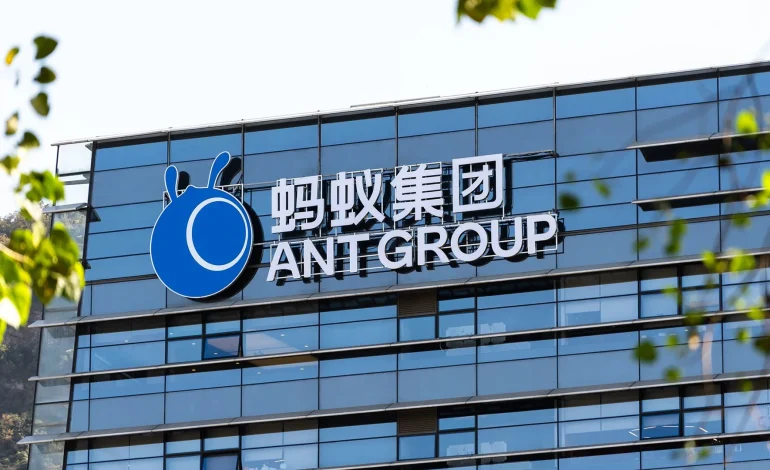Jack Ma Backed Ant Moves into Global Cash Management with AI

Introduction
Ant Group, the fintech giant backed by Jack Ma, has announced new initiatives to expand into global cash management services using artificial intelligence. The company, best known for Alipay, is positioning itself as a cross border financial technology leader at a time when demand for efficient treasury and liquidity solutions is increasing. The move demonstrates Ant’s ambition to extend beyond payments and consumer finance into the core infrastructure of corporate finance.
What the expansion involves
Ant’s global cash management strategy focuses on building AI powered platforms that can help multinational corporations manage liquidity, optimize working capital, and streamline foreign exchange settlements. These services will be integrated into its existing international payments network, which already connects merchants and consumers in more than 50 markets.
According to company statements, the platform will use machine learning to analyze transaction data, forecast cash flows, and recommend investment or hedging strategies. This would allow corporate treasurers to respond faster to shifts in currency values, interest rates, and trade volumes.
Why now
Global corporations are facing more volatility in currency and capital flows due to inflation, shifting interest rates, and geopolitical tensions. Traditional cash management systems are often fragmented across banks and regions, making it difficult to gain real time visibility. Ant sees this as an opportunity to apply AI and big data to create a unified solution.
For Ant, the timing is also strategic. Regulatory pressures in China have limited its domestic expansion since the halted IPO in 2020. By pursuing international business lines such as cash management, the company can diversify revenues and reduce reliance on the domestic payments market, which is already highly saturated.
Role of AI
Artificial intelligence is central to Ant’s vision. The platform will use predictive models to help companies forecast liquidity needs more accurately. For example, an exporter could receive real time alerts about potential currency mismatches or sudden changes in cross border payment patterns. AI algorithms could then recommend reallocation of funds or hedging instruments.
By embedding AI into cash management, Ant hopes to deliver a competitive edge compared to traditional bank offerings, which are often manual and less adaptive. This could attract corporations seeking both efficiency and innovation.
Competition and positioning
Ant’s move puts it into competition with global banks such as HSBC, JPMorgan, and Citigroup, all of which have large cash management businesses. However, Ant is betting that its technology driven approach will allow it to undercut incumbents on speed and cost.
In Asia, Ant already enjoys a strong payments footprint. Expanding into cash management could give it a natural advantage with corporate clients who already use Alipay or its cross border settlement platforms. By layering treasury services on top of existing payment flows, Ant can create a more comprehensive financial ecosystem.
Global ambitions and regulatory hurdles
The expansion aligns with Ant’s broader ambition to be a global fintech provider. However, international growth will not be easy. Regulatory scrutiny of Chinese tech firms remains high in Europe, the United States, and parts of Asia. Concerns about data privacy and financial stability could slow adoption.
To address this, Ant is expected to partner with local financial institutions and operate within national compliance frameworks. The company has also emphasized transparency in data usage and adherence to global anti money laundering standards.
Potential impact on China’s fintech strategy
Ant’s foray into global cash management highlights how Chinese fintech firms are moving beyond consumer facing services into the infrastructure of global finance. This aligns with Beijing’s broader goals of promoting the international use of the renminbi and reducing reliance on dollar based systems. If successful, Ant’s platform could make it easier for corporations to settle transactions in multiple currencies, including digital yuan once cross border pilots expand.
Investor perspective
For investors, the expansion demonstrates that Ant remains a growth story despite regulatory challenges. While the company’s domestic operations have stabilized, international expansion provides a new revenue stream. Analysts note that cash management is a high margin business, and even a modest share of the global market could significantly boost Ant’s earnings.
However, risks remain. Heavy investment in AI infrastructure and compliance will require upfront spending, which may pressure profitability in the near term. Success will also depend on the company’s ability to build trust with global corporations and regulators.
Challenges ahead
The biggest challenges for Ant are credibility and integration. Convincing multinational corporations to entrust their treasury functions to a Chinese fintech firm will require not only strong technology but also consistent regulatory compliance. Integration with existing bank systems and accounting software is another hurdle, as corporations need seamless connections across multiple jurisdictions.
Ant will also face competition from domestic peers. Tencent has been expanding its cloud and AI services, while state owned banks are developing their own digital treasury solutions. The competitive landscape in China and abroad will test Ant’s ability to differentiate its offerings.
Conclusion
Ant Group’s decision to move into global cash management with AI represents a bold attempt to redefine its role in global finance. By leveraging artificial intelligence and its international payments network, the company aims to deliver faster, smarter, and more cost effective treasury solutions. Success would mark a turning point not only for Ant but for Chinese fintech as a whole, expanding its influence from consumer apps to the heart of global corporate finance. The path forward will be challenging, but the scale of the opportunity makes this a strategic bet worth watching.






